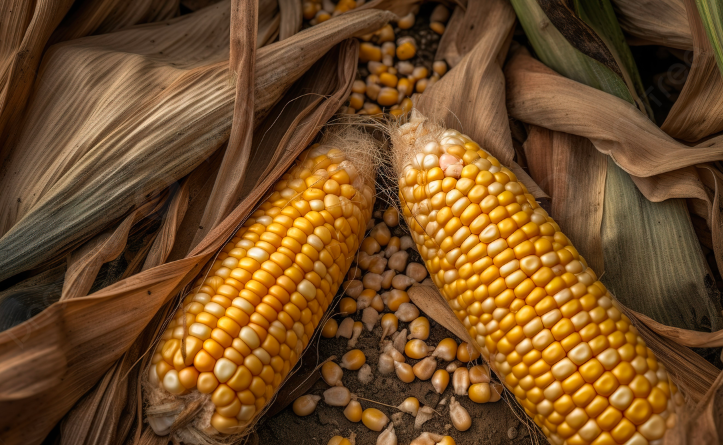Introduction
The agricultural industry has seen significant advancements in recent years, and one of the most innovative developments is FPOCorn. This new method aims to provide sustainable and efficient farming solutions while addressing food security and environmental challenges. In this article, we will explore the details of FPOCorn, how it is changing agriculture, and its role in promoting a more sustainable future.
What is FPOCorn?
It stands for Farmer Producer Organizations (FPO) Corn, a collective farming initiative where farmers come together to produce, process, and market corn in a more organized and sustainable manner. By working as a group, farmers benefit from economies of scale, better access to resources, and shared knowledge, leading to increased productivity and profitability.
Key Features of FPOCorn:
- Collective farming model
- Sustainable agricultural practices
- Improved access to markets and resources
- Enhanced productivity and income for farmers
The Impact of FPOCorn on Agriculture
It is revolutionizing the way corn is produced and marketed, creating a significant impact on both small and large-scale farmers. Here are the main ways FPOCorn is transforming agriculture:
1. Boosting Productivity
Through FPOCorn, farmers can access better seeds, fertilizers, and farming techniques, which lead to higher crop yields. By collaborating with agricultural experts, they also receive technical training on the latest farming practices.
2. Reducing Input Costs
One of the biggest challenges for individual farmers is the high cost of inputs such as seeds, fertilizers, and equipment. With FPOCorn, farmers can pool their resources to purchase these inputs in bulk, reducing overall costs.
3. Improving Market Access
It provides a platform for farmers to sell their produce collectively, giving them greater bargaining power and access to larger markets. This reduces their dependence on middlemen and ensures better prices for their crops.
4. Promoting Sustainable Farming Practices
Sustainability is at the core of the FPOCorn model. By adopting eco-friendly farming techniques, such as crop rotation, reduced chemical use, and efficient water management, FPOCorn contributes to environmental preservation.
Challenges Faced by FPOCorn
While FPOCorn offers numerous benefits, it also faces certain challenges. Addressing these obstacles is crucial for the continued success of this initiative.
1. Lack of Awareness
Many farmers are still unaware of the benefits of joining an FPO. Awareness campaigns and educational programs are needed to encourage more farmers to participate in this model.
2. Limited Access to Technology
Although it aims to improve access to technology, many rural farmers still face challenges in acquiring modern farming equipment and technologies. Governments and organizations need to provide more support in this area.
3. Financial Constraints
FPOs often require initial capital to set up infrastructure such as storage facilities and processing units. Limited access to credit and financial support can be a barrier to the growth of FPOCorn.
The Future of FPOCorn
Despite the challenges, it holds immense potential for transforming agriculture. As more farmers embrace this model, the agricultural sector will become more resilient and sustainable. Here are some future trends we can expect:
- Increased Adoption: As awareness grows, more farmers will likely join FPOCorn initiatives, leading to higher productivity and better market access.
- Technological Advancements: With the integration of new technologies like precision farming and data analytics, FPOCorn will further optimize agricultural practices.
- Sustainability Focus: Environmental sustainability will continue to be a key focus, with farmers adopting eco-friendly methods that reduce the carbon footprint of agriculture.
Benefits of FPOCorn for Farmers and the Environment
It brings several benefits to farmers and the environment, making it a vital tool in the quest for sustainable agriculture.
| Benefit | Impact on Farmers | Impact on Environment |
| Increased productivity | Higher yields due to access to better resources | Efficient use of land and water |
| Reduced costs | Lower input costs through collective purchasing | Reduced chemical usage |
| Better market access | Improved income through fair pricing | Less waste in crop production |
| Sustainable practices | Training on eco-friendly methods | Conservation of natural resources |
How Farmers Can Join FPOCorn
Joining FPOCorn can significantly improve a farmer’s livelihood. Here are the steps to become a part of this initiative:
- Connect with Local FPOs: Farmers should reach out to local Farmer Producer Organizations to inquire about membership and benefits.
- Attend Training Sessions: Many FPOs offer training sessions to educate farmers on sustainable farming practices and the advantages of collective farming.
- Contribute Resources: Farmers can contribute their resources, whether land or labor, to the FPO and benefit from shared profits and inputs.
- Collaborate with Other Farmers: Collective farming is all about collaboration, so farmers must work closely with others in the organization to maximize efficiency and productivity.
Conclusion
It is revolutionizing agriculture by providing farmers with the tools and resources they need to succeed. By promoting collective farming, reducing costs, and improving market access, FPOCorn is creating a more sustainable and profitable future for farmers. As more farmers join the initiative, the agricultural sector will become more resilient, environmentally friendly, and better equipped to meet the challenges of the future.
FAQs About FPOCorn
What is FPOCorn?
It is a farming initiative where farmers come together to produce, process, and market corn collectively, promoting sustainable agriculture and improving productivity.
How does FPOCorn benefit farmers?
It helps farmers reduce input costs, improve market access, increase productivity, and share resources, leading to higher profitability.
What are the challenges of FPOCorn?
Challenges include lack of awareness, limited access to technology, and financial constraints for infrastructure development.
How does FPOCorn promote sustainability?
It encourages eco-friendly farming practices such as crop rotation, reduced chemical use, and efficient water management to protect the environment.
Can small farmers join FPOCorn?
Yes, small farmers are encouraged to join FPOs to benefit from shared resources, better market opportunities, and collective knowledge.
How can farmers join FPOCorn?
Farmers can join by connecting with local FPOs, attending training sessions, and collaborating with other farmers to contribute to collective farming efforts.






